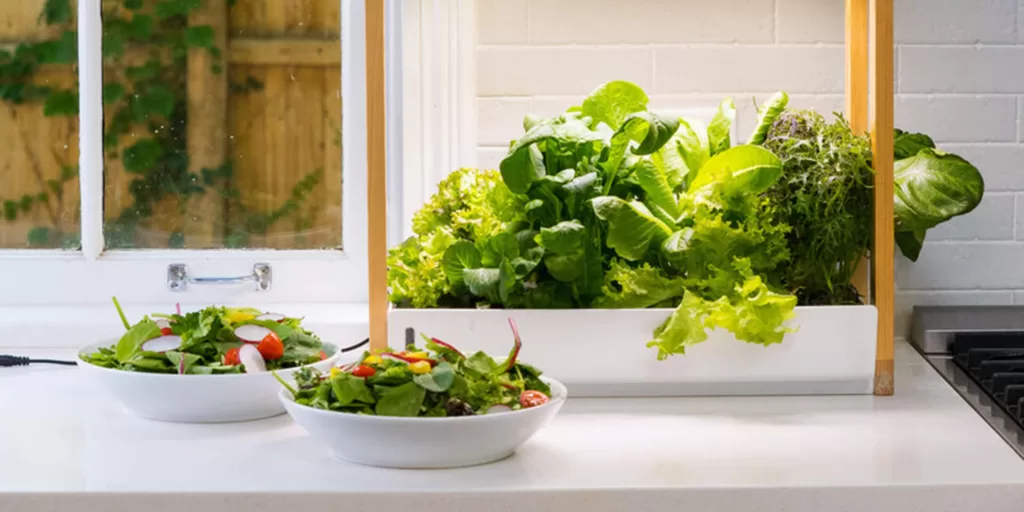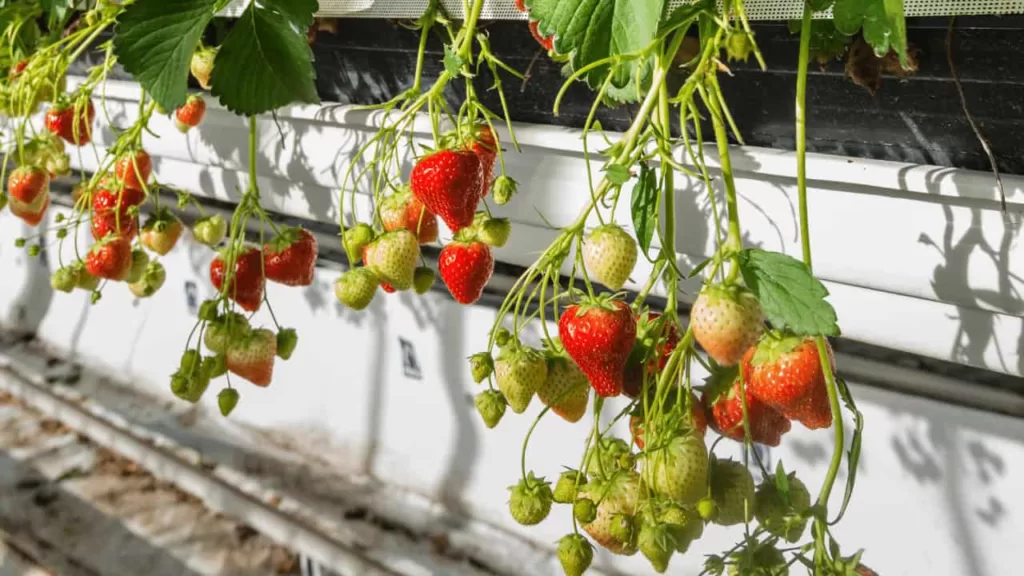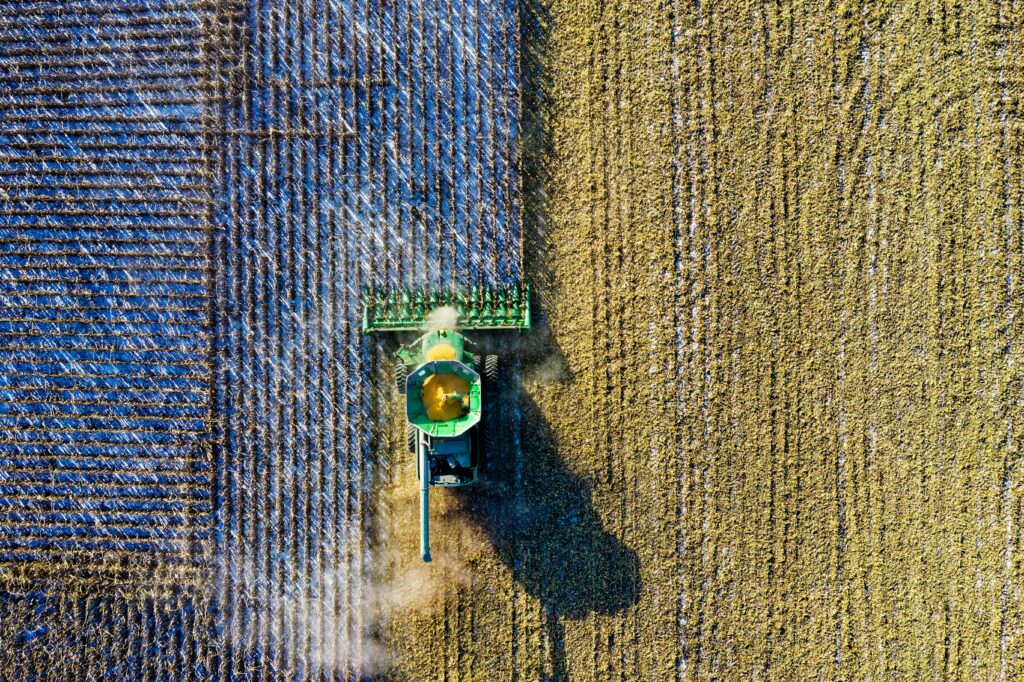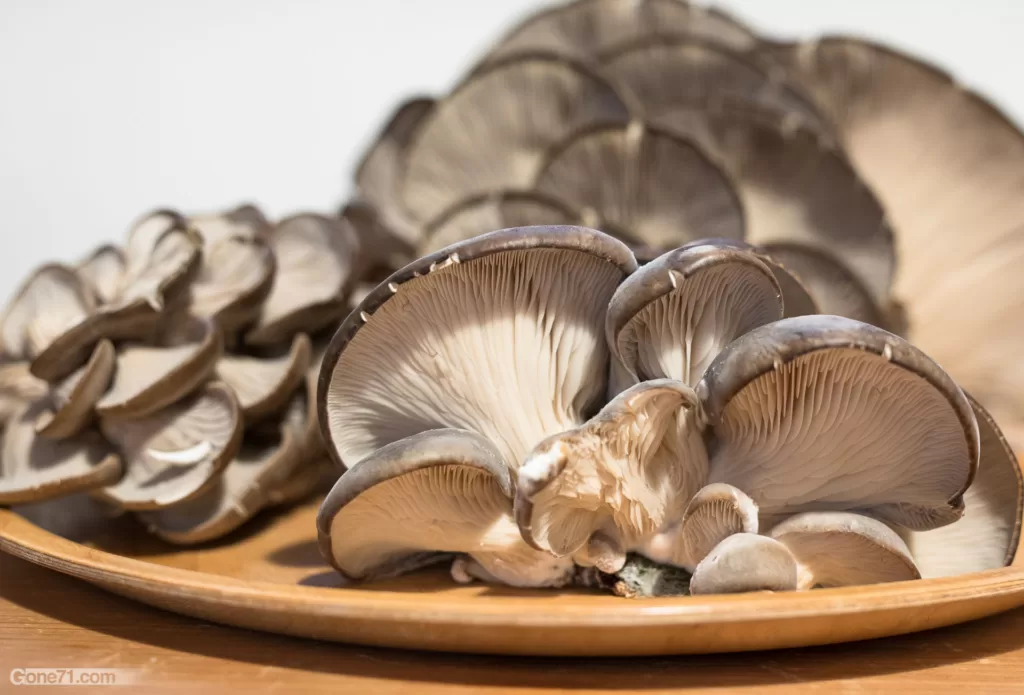Hydroponic gardening has revolutionized the way we grow plants, offering a water-efficient, space-saving, and year-round cultivation method. This innovative approach to gardening has gained immense popularity among beginners, as it allows them to grow their favorite plants without the need for traditional soil. Whether you have limited gardening space or wish to explore a more sustainable way of cultivation, hydroponics offers an exciting and rewarding journey.
Understanding Hydroponic Gardening for Beginners
Before diving into the world of hydroponic plants, let’s explore the fundamentals of hydroponic gardening. Hydroponics is a method of growing plants without soil, where plant roots are submerged in nutrient-rich water. This technique ensures plants receive all the essential nutrients they need for healthy growth.
Hydroponic systems come in various styles, from simple Kratky setups to more complex Nutrient Film Technique (NFT) and Deep Water Culture (DWC) systems. Beginners can start with straightforward systems and later experiment with more advanced setups as they gain experience.
Hydroponics offers numerous advantages over traditional soil-based gardening. It conserves water by recirculating nutrient solutions, requires less space, and enables year-round cultivation. Additionally, hydroponic plants often experience faster growth and higher yields, making it an appealing choice for both beginners and experienced gardeners.
Factors to Consider When Choosing Hydroponic Plants
Selecting the right plants is crucial for successful hydroponic gardening. When choosing hydroponic plants, there are several factors to consider:
- Light Requirements: Different plants have varying light needs. Some thrive in full sunlight, while others prefer partial shade. Ensure your chosen plants receive the appropriate amount of light in your growing area.
- Space Limitations: Take into account the available space in your hydroponic system. Certain plants, like vining crops, may require additional support or trellising to grow vertically.
- Growth Rate: Consider the growth rate of the plants. Fast-growing plants are ideal for beginners as they provide a sense of accomplishment in a shorter time.
- Easy-to-Grow: Start with easy-to-grow plants that are forgiving of minor mistakes. This will boost your confidence as you venture into hydroponic gardening.

Top Picks: Best Hydroponic Plants for Beginners
Now, let’s explore the top picks for hydroponic plants that are well-suited for beginners:
- Lettuce (Lactuca sativa): Lettuce is a popular choice among hydroponic gardeners due to its quick growth and adaptability to various hydroponic systems. It thrives in both NFT and DWC setups.
- Basil (Ocimum basilicum): Basil is a flavorful herb that grows exceptionally well in hydroponics. Its vibrant green leaves and enticing aroma make it a delightful addition to any garden.
- Spinach (Spinacia oleracea): Spinach is a nutrient-rich leafy green that performs exceptionally well in hydroponic environments. It requires relatively less light and is a great choice for indoor hydroponics.
- Swiss Chard (Beta vulgaris subsp. cicla): Swiss chard is a nutritious and visually appealing plant. Its colorful stems and large leaves make it an attractive addition to hydroponic gardens.
- Green Beans (Phaseolus vulgaris): Green beans, also known as string beans, can be grown vertically in hydroponics, making efficient use of space. They produce abundant harvests of fresh and tender beans.
- Cherry Tomatoes (Solanum lycopersicum): Cherry tomatoes are well-suited for hydroponic systems and provide a steady supply of sweet and juicy tomatoes throughout the growing season.
Growing Tips and Techniques
To ensure the success of your hydroponic plants, consider the following growing tips and techniques:
- Nutrient Solutions: Pay attention to nutrient solutions and their composition. Follow manufacturer guidelines or create your own balanced nutrient solution for optimal plant health.
- Lighting: Provide adequate and appropriate lighting for your plants. LED grow lights are a popular choice for indoor hydroponics.
- pH Levels: Monitor and maintain pH levels within the recommended range. Most plants prefer a slightly acidic environment around pH 6-6.5.
- Water Management: Avoid overwatering or underwatering your plants. Monitor water levels in your system and ensure roots are adequately hydrated.
- Pruning: Regularly prune your plants to encourage bushier growth and better airflow. This helps prevent disease and nutrient deficiencies.
Troubleshooting Common Issues
As a beginner, you may encounter common challenges while cultivating hydroponic plants. Here are some troubleshooting solutions:
- Nutrient Deficiencies: Learn to identify nutrient deficiencies in plants, such as yellowing leaves or stunted growth. Adjust nutrient solutions to address deficiencies.
- pH Imbalances: Fluctuations in pH levels can affect nutrient absorption. Regularly check and adjust pH levels as needed.
- Overcrowding: Avoid overcrowding your hydroponic system, as it can lead to competition for nutrients and limited space for growth.
- Pest Management: Implement preventive measures to deter pests and insects from infesting your plants.
Hydroponic gardening offers an exciting and rewarding experience for beginners. By selecting the right plants and mastering essential techniques, you can achieve bountiful harvests and enjoy the benefits of fresh, homegrown produce. Remember to start with easy-to-grow plants, and as you gain confidence, feel free to experiment with more challenging varieties. Embrace the world of hydroponic gardening, and soon you’ll find yourself immersed in a thriving and sustainable garden of your own creation. Happy hydroponic gardening!
Getting Started with Hydroponic Gardening: A Beginner’s Guide
Hydroponic gardening has gained immense popularity in recent years, attracting both seasoned gardeners and novices alike. This innovative method of growing plants without soil offers numerous advantages, including water efficiency, faster growth rates, and the ability to cultivate crops year-round. For beginners who are eager to embark on a rewarding gardening journey, hydroponics provides an excellent opportunity to nurture plants and enjoy the fruits of their labor. In this comprehensive guide, we will explore whether hydroponic gardening is suitable for beginners and provide valuable tips for a successful start.

Understanding Hydroponic Gardening for Beginners
Hydroponic gardening is a technique where plants grow in nutrient-rich water solutions, with their roots directly exposed to the essential elements needed for growth. This method eliminates the need for traditional soil and allows plants to absorb nutrients more efficiently. Hydroponics provides a controlled environment, making it easier to manage water, nutrients, and other critical factors affecting plant health.
Advantages of Hydroponic Gardening for Beginners
Hydroponic gardening offers several advantages that make it an attractive option for beginners:
- Water Efficiency: Hydroponic systems use up to 90% less water compared to traditional soil-based gardening, making it an eco-friendly choice.
- Space-Saving: Hydroponic setups require minimal space, making them suitable for small apartments, balconies, and even indoor gardening.
- Faster Growth: Plants in hydroponic systems typically grow 20% to 50% faster than their soil counterparts, allowing for quicker harvests.
- Year-Round Cultivation: Hydroponics enables year-round cultivation, providing fresh produce even during colder months.
Simplicity of Hydroponic Systems for Beginners
Hydroponic systems come in various styles, and many are designed with beginners in mind. Some beginner-friendly systems include:
- Kratky Method: A passive hydroponic system that requires no electricity or pumps, making it easy to set up and maintain.
- Wick System: Another passive system using a wick to deliver nutrients to the plants, making it low-maintenance and straightforward.
- Deep Water Culture (DWC): A simple and popular system where plant roots are suspended in nutrient-rich water.
- Nutrient Film Technique (NFT): A continuous-flow system that allows a thin film of nutrient solution to flow over plant roots.
Essential Considerations for Beginners
Before diving into hydroponic gardening, beginners should consider the following:
- Start Small: Begin with a small setup and a few easy-to-grow plants. As you gain experience, you can expand and experiment with more complex systems.
- Research and Learn: Educate yourself on hydroponic principles, nutrient solutions, pH management, and lighting requirements.
- Quality Nutrients: Invest in high-quality nutrient solutions specifically formulated for hydroponic gardening.
- Monitoring: Regularly monitor plant health, nutrient levels, and pH to ensure optimal conditions for growth.

Common Challenges and How to Overcome Them
Like any gardening method, hydroponics presents its own set of challenges for beginners. Here are some common hurdles and how to overcome them:
- Nutrient Imbalances: Maintain the correct nutrient balance to prevent nutrient deficiencies or toxicities. Follow recommended nutrient dosages and monitor nutrient strength regularly.
- pH Fluctuations: Monitor and adjust pH levels to keep them within the optimal range for your chosen plants.
- Temperature Control: Maintain a suitable temperature for plant growth, as extreme temperatures can affect nutrient absorption.
The Joy of Hydroponic Gardening
Hydroponic gardening offers beginners a fulfilling experience, enabling them to nurture healthy plants and enjoy the satisfaction of harvesting homegrown produce. The controlled environment of hydroponics provides an excellent platform for learning and experimenting with various plant varieties and growing techniques.
Hydroponic gardening is undoubtedly accessible and rewarding for beginners. With a little research, dedication, and attention to detail, anyone can start their hydroponic journey successfully. The benefits of water efficiency, space-saving, and faster plant growth make hydroponics an appealing option for urban dwellers and gardening enthusiasts alike. So, don’t hesitate to delve into the fascinating world of hydroponic gardening and watch your plants thrive in their nutrient-rich water environment. Happy hydroponic gardening!






